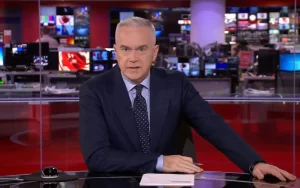Conscious Communications is a dynamic public relations agency renowned for creating impactful communication strategies that forge powerful brands, elevate awareness, safeguard reputations, and drive client engagement.
Leveraging extensive industry knowledge and strategic media connections, the agency positions clients at the forefront of their markets, crafting compelling narratives that resonate and influence behavior.
Boasting a dedicated team of 17 professionals, Conscious Communications offers a unique blend of high-impact public relations, marketing communications, event planning, and design services. Their diverse clientele spans education, technology, energy, development, non-profit organizations, and charities.
The agency prides itself on a core philosophy of “doing well by doing good,” prioritizing the societal impact of their work over mere profitability. This ethical approach marries strategic expertise with creativity, establishing values-driven practices that foster professional and personal development, social responsibility, and community engagement.
p in creating social change; from our commitment to developing ourselves professionally and personally, to our voluntary work.
What was the inspiration behind Conscious Communications?
Conscious Communications was established from a passion to do things differently: to add genuine value, deliver return on investment for our clients without compromising ethics and use profits to give back to the community.
The company is built on the principles of a conscious business, meaning that it’s not just what we do that’s important but how the team does it. Our open and transparent approach ensures we make clear and conscious decisions for our clients, partners, business, people and the environment.
Who do you admire?
Any business owner or leader who is riding the wave that is the current economic climate post-pandemic. Running a business can be challenging and it’s how you overcome those challenges and continue on a growth trajectory that makes a business stand out. Hearing from leaders about how they grew their business, often starting in their kitchen à la Julie Deane (Cambridge Satchel Company) or Ella Mills (Deliciously Ella), and overcoming hurdles, whether in or out of their control, is always valuable learning.
I am also a strong advocate for profiling working families, especially women in leadership roles. You would think in 2024 we wouldn’t have to break the cycle of gender roles historically imposed by society but sadly here we are. I am a mother of two young children and I hope that when they are older they will be empowered by seeing their mum running a small business!
Looking back, is there anything you would have done differently?
Our culture is incredibly important to us; at times we haven’t got it right with our recruitment so I would have taken more time to hire, making absolutely sure people align with our company’s values and vision, no matter how urgently we need to fill a position.
What defines your way of doing business?
Our objective in founding the agency in 2012 was to be a force for good and to use our public relations expertise to have a positive social impact, by addressing inequalities, creating opportunities, and helping to drive social mobility locally and in the wider world.
By putting corporate social responsibility and sustainable development at the heart of our business, we are setting an example and demonstrating to others how a business can thrive, while making a positive impact on the lives of others and on the environment. Our work, actions and behaviours act as a ‘magnet’, attracting the types of clients that we dream of working with and the talented employees we need in our team.
As an independent business operating in the service industry, ours is not a business that attracts huge external investment to grow rapidly. Since start up in 2012, Conscious Communications has grown steadily and organically, despite being faced with a global pandemic. Our growth is totally dependent upon the hard work, expertise and dedication of our team. Our intention is to continue to invest all of our profit into our people, our charitable activities, and into the local community, while also giving our most valuable commodity – our time – to charitable causes and working in the community with disadvantaged people.
We have created and registered a charity (FXP Festival) as well as a community interest company (Cambridge 2030), both of which aim to drive social mobility and improve the quality of life for people in Cambridge which, in turn, benefits the economy and other businesses in and around the city.
In January 2024, we were awarded Platinum by Investors in People, the highest level of accreditation granted by the UK’s leading accreditor for business improvement through people management in the UK. We sought assessment against the Investors in People standards after achieving Gold accreditation for the second time in 2021. Our commitment to our people, our agency culture and local community is core to our business. From the day we started Conscious Communications, we wanted to create an agency that is different and driven by values; thinking about the impact our work will have on others and creating a culture that empowers its employees.
In May 2023, we became a certified B Corporation (B Corp), reinforcing our commitment to a higher standard of business which aligns closely with our mission to be a force for good. The B Corp certification addresses the entirety of a business’ operations and covers five key impact areas of Governance, Workers, Community, Environment and Customers. To complete the certification, we have legally embedded our commitment to purpose beyond profit in our company’s articles of association. From our supply chain to our office operations, we meticulously consider the social and environmental impact of everything we do and we actively seek out opportunities to support local communities, and champion diversity and inclusion. The B Corp accreditation is validation that our business has been, is and will continue to do well by doing good.
What advice would you give to someone starting out?
Seek feedback from those around you on your plans and ambitions for the business and commit to your proposition.
Read more:
Getting To Know You: Zoë Scorer, MD, Conscious Communications











